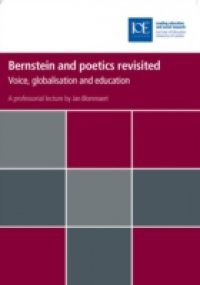In an increasingly globalised society, language can be not only a source of difference, but also of inequality. In order to be understood, immigrants need not only learn the language of their new country, but also the social, cultural and historical contexts that dictate how that language is used. Variations of linguistic expression within society can also reveal socio-economic and educational differences. People are judged by their spoken and written expression, and those who do not adhere to the linguistic norms of society may find themselves at a disadvantage. In his lecture, Jan Blommaert explores these tensions, using a range of practical evidence to argue that structured attention to narrative and poetic form is necessary in order to truly understand what is known as voice, which is the way people express themselves while negotiating linguistic barriers. Understanding of voice is particularly important in the field of education, which currently is increasing emphasis on standards of so-called 'correct' language. As this emphasis grows in strength and influence, it may lead to increased social exclusion of already suppressed voices.

